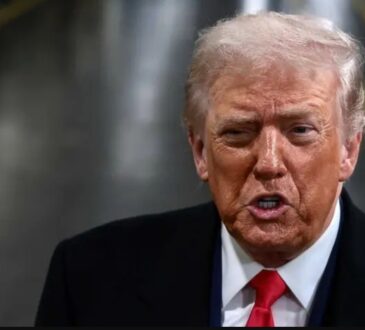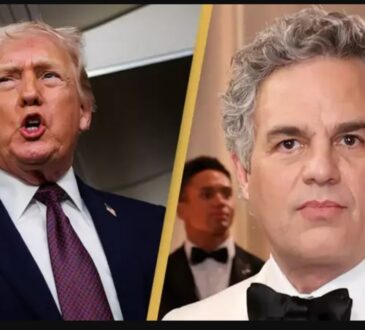Russia responds after Trump threatened to ‘bomb the s*** out of Moscow’ in leaked audio tapes

Russia has responded firmly after leaked audio recordings revealed former U.S. President Donald Trump allegedly threatened to attack Moscow if Russia invaded Ukraine.
The recordings, reportedly from a private fundraiser in 2024 before Trump launched his campaign for a second term, have stirred controversy and caught the attention of both American and Russian officials.
In the audio, Trump is heard speaking to a group of wealthy political donors. He claimed that during his past conversations with Russian President Vladimir Putin, he gave a direct warning.
Trump said he told Putin that if Russian forces entered Ukraine, the U.S. would retaliate by launching a severe military strike on Moscow. Trump emphasized he didn’t have a choice, suggesting the threat was meant to stop any aggressive action. He also admitted that Putin didn’t fully believe him, saying the Russian leader only took him seriously “about 10%.
Trump didn’t stop there. According to the same recordings, he mentioned that he gave a similar warning to Chinese President Xi Jinping. In that case, Trump claimed he told Xi that the U.S. would bomb Beijing if China attempted to invade Taiwan. These statements, if true, highlight Trump’s aggressive foreign policy stance and his preference for using bold threats as a way to deter conflict.
The recordings were reportedly made during fundraising events in New York and Florida. They were later shared by journalists who included them in a new book focusing on Trump’s 2024 election campaign.
However, it’s unclear exactly when these conversations with world leaders allegedly took place, or whether they were part of official diplomatic talks or more informal interactions. There’s no public record of these threats being communicated directly to either Putin or Xi through formal government channels.
In response to these claims, the Russian government has strongly denied any such conversations ever happened. Dmitry Peskov, a spokesman for the Kremlin, dismissed the idea entirely.
He stated there were no phone calls between Trump and Putin during the time Trump mentioned, adding that the period Trump referred to was before he officially returned to office as president. According to the Kremlin, the claims don’t line up with any known interactions between the two leaders.
This controversy arrives at a time when Trump has been increasingly vocal about his frustration with Russia’s continued military aggression in Ukraine. In a recent press conference held after a cabinet meeting, Trump expressed dissatisfaction with President Putin.
He stated that he was angry about the ongoing loss of life in Ukraine and accused Putin of being two-faced acting friendly in conversations but failing to follow through on promises or take meaningful actions to stop the war.
Trump also hinted that he’s considering introducing a new piece of legislation that would place additional sanctions on Russia. In addition, he approved more U.S. military aid to be sent to Ukraine, continuing the country’s support for Ukraine in its defense against the Russian invasion.
The Ukrainian President, Volodymyr Zelenskyy, welcomed the decision but stressed the importance of acting quickly. He emphasized that every delay in support could cost more Ukrainian lives and make the situation even harder to control.
The situation has added fuel to an already tense relationship between the U.S., Russia, and China. While Trump’s defenders might argue that his boldness sends a strong message, critics are concerned that these types of statements especially if made casually at fundraising events could damage diplomatic relations or even escalate tensions.
Meanwhile, both the White House and the Kremlin have been asked for official comments, but so far, neither has made a detailed public statement beyond what has already been reported.
This latest development raises new questions about Trump’s approach to foreign policy and whether his private remarks could have broader consequences for international relations, especially with two of the world’s most powerful nations.




